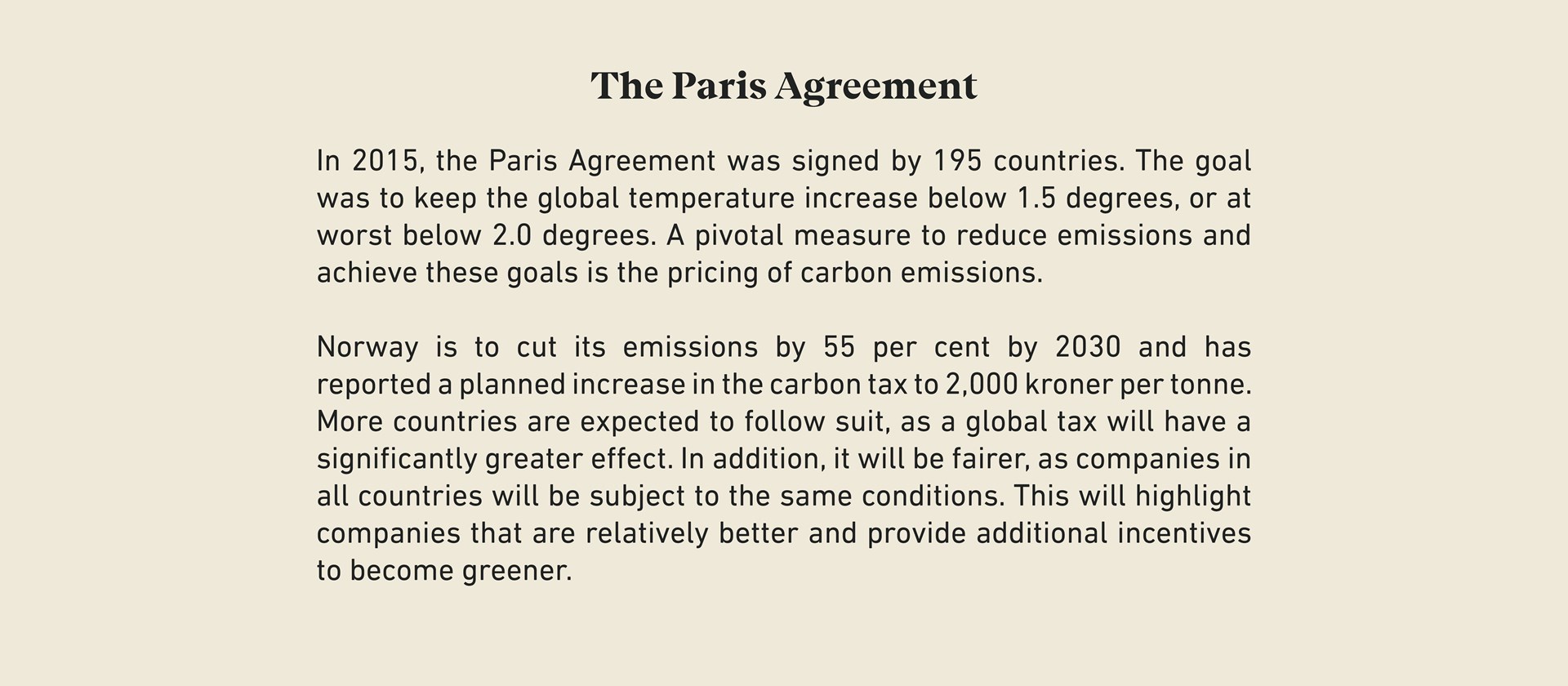The portfolio management team mainly looked at two aspects: taxation of direct emissions (so-called scope 1) and value chain effects (scope 2 and 3). Looking at the companies' prospective tax bills is not enough. The key is their relative position in their industry and, of course, the industry’s own vulnerability.
Norsk Hydro
Norsk Hydro operates in a carbon-intensive industry. The product, aluminium, is a light and strong metal, widely used and recyclable, and demand is expected to increase. But production requires a lot of energy, and a global carbon tax will significantly affect the supply side. The industry will incur higher taxes/costs, in addition to having to invest heavily to reduce emissions. Higher costs will push up aluminium prices, benefitting companies with lower carbon intensity. Norsk Hydro is one of the world's cleanest producers, using a lot of renewable energy. Some of the largest competitors are 3 to 8 times as carbon intensive. Consequently, a global carbon tax will significantly strengthen Norsk Hydro's competitiveness.
Yara International
Similar effects apply to Yara International. A growing global population needs food. The challenge is to produce enough food, fast enough, in a small enough area. Yara's quality fertiliser solutions contribute to increased food production, while reducing space requirements and consequently deforestation.
Then again, fertiliser production requires ammonia, which in turn requires hydrogen, which is now mainly produced from natural gas. This emits a lot of carbon dioxide. But Yara's relative position is strong, and a global tax will put significantly higher pressure on competitors. Increased industry costs will increase fertiliser prices. Yara will then improve its margins, have more room to invest in emission-friendly technologies, and thus strengthen its competitive advantage. In addition, Yara is far ahead in the production of green ammonia, a preferred solution in the development towards emission-free shipping.

Equinor
Of course, a carbon tax will also impact oil and gas producers. Here, the indirect effects are clearly stronger than the direct ones, as consumption accounts for the larger part of the emissions. In the short run, the world is dependent on fossil energy sources, and oil and gas will remain an important source of energy and energy storage. Demand for gas will probably even increase because of reduced coal-based energy, a clear climate "worstie".
In a longer-term perspective, however, demand will be negatively affected by the shift towards renewable energy sources. In addition, the industry will be hit by increased direct taxes (albeit to varying degrees) and increased input prices. The companies that will prevail are those with the lowest carbon footprint. Equinor stands out as one of the world's cleanest producers and will (and should) be one of the last to halt production, provided they maintain their competitive advantage.
The value of active asset management
These are not isolated cases. We see several such companies in the portfolio. For instance, salmon has a much lower carbon footprint than other protein sources and Elopak produces their cartons with a fraction of the emissions from plastic substitutes. Overall, the portfolio has a strong relative position. We expect a global carbon tax to strengthen this position significantly.
Our study thus provides renewed confirmation of the complementary nature of sustainability and long-term value creation. And of the value of active asset management.



